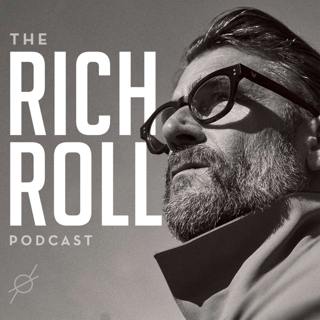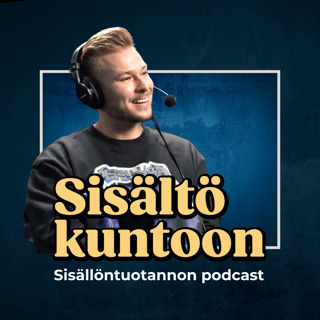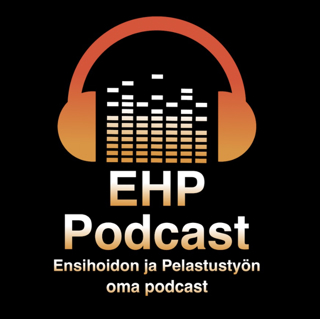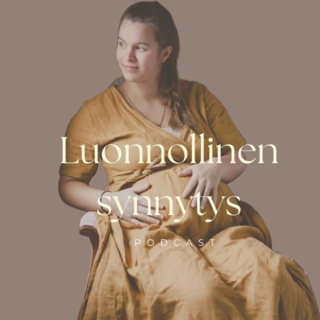
Shalane Flanagan & Elyse Kopecky: How To Run Fast, Eat Slow And Love The Journey
There are people that run. There are others who run fast. But few people on Earth run like the remarkable Shalane Flanagan. Over the course of her distinguished 16-year professional career, Shalane has made 4 consecutive Olympic teams, won an Olympic medal and set a variety of American records across a wide array of distances on both the track and the road. To put her excellence in perspective, consider this: in 2010, she finished second at the prestigious New York City marathon — her very first 26.2 ever — clocking the best finish by an American female at that race in 20 years. She's also run the fastest time ever by an American woman at the Boston Marathon and in 2014 set her personal best in Berlin with a blazing 2:21.14, the second-fastest time ever by an American woman. But what’s truly unique about this assassin in compression socks is the extraordinary extent to which Shalane has distinguished herself across a multitude of distances & disciplines. On dirt, she's won collegiate national championships in cross-country. On the track, she's set American records at both the 3000 & 5000 meter distances. And on the road she's broken American records in both 10K & 15K and achieved two Olympic marathon berths, including her recent 6th place showing in Rio. Beyond her extraordinary accomplishments and amidst all her obligations as the world's greatest running polymorph, Shalane finds herself today embarking on a new chapter — as a foster parent to twin teenage girls along with her husband Steve Edwards (a badass runner in his own right). And yet somehow, she still mustered the time to write a cookbook with her lifelong friend Elyse Kopecky – a former college cross-country teammate who left a career in digital marketing at Nike to become a chef, food writer, nutrition educator, and mom after studying culinary arts in New York and abroad. The result of Shalane and Elyse's beautiful collaborative partnership is the newly minted New York Times' bestselling Run Fast Eat Slow*. Part culinary primer and part lifestyle manifesto, it's a beautiful whole foods, flavor-forward cookbook packed with nourishing and delicious recipes, nutritional wisdom and inspiring stories from two accomplished women you can't help but love. Women who believe and prove that you can be healthy and perform at your peak without counting calories, obsessing over protein, or restricting yourself to diets that do more harm than good. As a quick aside to all my fellow passionate vegan friends (I love you), a disclaimer: Run Fast Eat Slow is not a 100% plant-based cookbook. Notwithstanding, the cookbook does contain plenty of great plant-based dishes as well as heaps of wisdom relative to cultivating a more conscious and deliberate relationship with the food we source, prepare and consume — subjects I think we can all get behind, irrespective of specific dietary preferences. In this conversation, Shalane and Elyse impart loads of practical, experience-based advice, including: Shalane’s specific training protocols, race day rituals, fueling strategies (her take on supplements might surprise you), recovery routines, mindset tactics and some of the common mistakes most runners make. Enjoy! Rich
12 Syys 20162h 4min

How To Cultivate Non-Judgment
Humans love duality. But there is great beauty in the grey that lives between the lines. Black and white. Good and bad. Evolution and regression. We are hard wired to categorize. To pick a team and stick with it. It’s our way of making sense of the world. But too often this inclination to self-identify only serves to isolate and divide — working at cross-purposes with our competing desire to more deeply connect with our fellow humans. So what happens when we resist the urge to judge another? This week on the podcast Julie and I peer beyond dogma, belief systems and categories to embrace the grey. Consider it a thought experiment in forsaking judgment for empathy as a path to better understand others and the environments we co-inhabit. Specific topics include: * creating and cultivating community * the difference between discernment and judgment * enhancing sustainability in consumer choice * finding your authentic voice We end the episode with a rendition of the Hedy West song 500 Miles by Julie (aka SriMati) and our boys' band Ana Leimma. I sincerely hope you enjoy the conversation. Peace + Plants, Rich
5 Syys 20161h 6min

Alexis Fox & Micah Risk Are Igniting A Social Movement To Help The World Eat Better
Today finds us mired in an unprecedented health and environmental crisis of cataclysmic proportions. Heart disease, America's #1 killer, currently claims one out of every three lives. 70% of Americans are obese or overweight. By 2030, experts indicate that 30% of Americans will be diabetic or pre-diabetic. The heartbreaking culprit? SAD. But the Standard American Diet isn't just killing people, it's annihilating the planet. In fact, our system of industrialized animal agriculture is the #1 culprit when it comes to almost every single man made environmental ill on the planet. From mass species extinction to disappearing rainforests to giant algal ocean blooms, it's an indefensible and unsustainable modality wrecking unrivaled havoc on our oceans, rivers, streams, soil and animals. Meet Alexis Fox and Micah Risk — two entrepreneurs leveraging cutting edge technology to turn our epidemic of SAD into an outbreak of happy, healthy and sustainable for people and the planet alike. Their solution has a name. It's called Lighter. A powerful new online platform fueled by the latest in modern machine learning, Lighter aims to help the world eat better by leveraging the collective wisdom and experience of leading health gurus, athletes, super parents, and awe-inspiring world changers to provide everyday consumers across the globe with customized, convenient and insanely useful grocery lists, flexible weekly menus and soon even grocery delivery. It's an ambitious goal. But not only are Alexis and Micah are up to the task, they just might be badass enough to pull it off. An accomplished athlete and mom rocking some pretty awesome tattoos, Micah is a graduate of the Friedman School of Nutrition Science and Policy at Tufts with a background working with the World Health Organization. When she isn't training with The November Project in Boston, kicking ass in marathons and ultras, or gracing the cover of Runners World magazine (she actually appeared on the RW cover an unprecedented two times in one year), she's helping everyday people adopt sustainable healthy lifestyle solutions. Alexis is the yin to Micah’s yang. A former debate champion, improv comedian, attorney and college professor, Alexis is the former Massachusetts state director for the Humane Society. After losing 45 pounds incident to adopting a plant-based diet, she was inspired to start Lighter by her life partner Josh Balk, the co-founder of Hampton Creek — the company behind Just Mayo that is taking healthy plant-based foods to the masses. The history between this dynamic duo is fascinating. Although both of them have dedicated their entire lives to helping fix our broken food system, neither of them ever imagined that they would be running a tech company. And yet here they are — two powerful women leaders kicking ass and taking names. This is an enlightening and informative conversation about food policy and politics. It's a comprehensive redress of our broken food system and a positive, solution-based discourse on how we can fix it. It’s a conversation about what commonly holds people back. And the vital importance of building consensus with a focus on fostering community-based support systems in the interest of helping people eat and live better. It's conversation about female empowerment. And it’s a master class on how to ignite a social movement. Enjoy! Rich
29 Elo 20162h 9min

Coach George Raveling Is The Mentor You Wish You Had: Breaking Civil Rights Barriers, Staying Young & How The Hall of Famer Came To Possess MLK’s Most Famous Speech
One of the most respected and revered figures in sport, George Raveling is basketball — and so much more than basketball. The current Director of International Basketball for Nike, he was the first African American basketball coach at Villanova, University of Maryland, Washington State and University of Iowa before closing out a storied career at USC. He is an inductee into several halls of fame, including the College Basketball Hall of Fame and the Naismith Memorial Basketball Hall of Fame. He is a civil rights activist, outspoken on a wide array of social issues at the intersection of race, education and athletics. A world-class educator, he is a moulder of boys into men, and men into better men. Bottom line? George Raveling is the mentor you wish you had. But you can just call him Coach. This week I sit down with a truly remarkable man. A 79-year old with the vibrancy and energy of a college student, I was immediately struck by George's insatiable thirst for learning. His passion for ideas. And his devotion to people, human potential & personal development. Coach has lived life. And he's got stories to prove it. Inspirational stories about breaking racial barriers during the era of segregation. Instructive accounts of owning your destiny. And of course there's the legendary saga of how a young George came to stand alongside Dr. Martin Luther King, Jr. on the steps of the Lincoln Memorial during the March on Washington as Dr. King delivered his historic I Have A Dream speech. There's so much more to this incredible story — and to George — but I'm not going to spoil it here. I'll let Coach tell it in his own words. This is a phenomenal conversation about breaking barriers. It's about self-governance, self-belief and self-responsibility. It’s about literacy, civil rights and humanity. And it's about the importance of being a positive difference maker in the world. An absolute gem of a human being, George is a national treasure. I loved every second of my time with him and something tells me you will too. So take a knee and huddle up, because Coach has a message for you. Peace + Plants, Rich
22 Elo 20161h 32min

Neal Barnard, M.D. On The Power of Nutrition To Prevent & Reverse Heart Disease, Diabetes & Alzheimer’s
There's nothing I can do — it's genetic. Without a doubt, many of us have predispositions to developing certain diseases. But predisposition is a far cry from predetermination. In fact, you might be surprised to learn the vast extent to which we can control the expression of genetic inclinations when it comes to so many of the chronic illnesses that are unnecessarily killing millions of people annually — including modern-day plagues like heart disease, diabetes and Alzheimer's. This week I'm thrilled to sit down for a long overdue conversation with my friend Neal Barnard, MD to discuss the innate, incredible power we all possess to prevent and even reverse the onset of these illnesses through implementation of fairly simple simple diet and lifestyle alternations. A pre-eminent authority on the impact of diet & nutrition on atherosclerosis, diabetes, cancer and Alzheimer’s, Dr. Barnard is an adjunct associate professor of medicine at the George Washington University School of Medicine and Health Sciences as well as the founder and president of the Physicians Committee for Responsible Medicine, where he leads programs advocating for preventive medicine, good nutrition, and higher ethical standards in medical and scientific research. Over the course of his career, Dr. Barnard has led numerous research studies investigating the effects of diet on diabetes, body weight, and chronic pain. He’s authored over 70 scientific publications as well as 17 books, including the New York Times best-sellers Power Foods for the Brain ,21-Day Weight Loss Kickstart*, and the USA Today best-seller Dr. Barnard’s Program for Reversing Diabetes*. If that's not enough, Dr. Barnard recently christened the Barnard Medical Center, a brand new, ground-breaking non-profit primary care medical practice where board-certified physicians, nurse practitioners, and registered dietitians help patients prevent and reverse serious health problems, leveraging a holistic approach that involves tackling the actual causes of illness, with extra attention on nutrition. Chock-a-block with life-altering information, this is a profound conversation about food as medicine. It's about the impact and importance of self-sovereignty — prioritizing personal responsibility for what we put in our mouths, how we move our bodies and advocate for change. And it's about the incredible power of nutrition to heal ourselves. One of the most intelligent, articulate, tireless and well-respected voices on the subject of optimal wellness and disease prevention, it's an honor and privilege to share my friend's abundant wisdom and practical experience with you today. So break out the notepad and enjoy this powerful exchange. Enjoy! Rich
15 Elo 20162h 3min

Steve Case On Building Empires, Changing The World & The Internet’s Third Wave
It's hard to imagine, but in 1985 — the year this week's guest co-founded America Online — only 3% of Americans were connected to the internet, online for an average of a measly one hour per week. It took a decade, many near-death experiences and back to the wall pivots, but under the leadership of Steve Case, AOL would go on to become the world’s largest and most valuable internet company, driving worldwide adoption of the medium that has literally transformed every aspect of modern day life. The story is legend. After AOL became the first internet company to go public, Bill Gates gave Steve a choice — sell his upstart to behemoth Microsoft or get crushed. Believing in himself, his team and the renegade idea of community over content, Steve decided to take his chances. David against Goliath, the odds were not in his favor. But not only did AOL survive, it went on to become the top performing stock of the 1990s. At its peak, nearly half the users in the United States used AOL to access the internet. When AOL's valuation escalated to $163 billion in 2000, Steve negotiated a $350 billion merger of AOL and Time Warner, the largest merger in business history, and served as chairman of the media and communication colossus until 2003. It all looked great on paper. But paper isn't reality. Cultures clashed. The stock price plummeted. With his own take on why the historic merger faltered, Steve lives to fight another day. Today Steve is chairman and CEO of Revolution, DC-based investment firm, and the Case Foundation, a philanthropic effort that invests in hundreds of organizations with an entrepreneurial approach to strengthening the social sector. The epitome of the American Entrepreneur and a true maverick of the digital age, this week I sit down with Steve to discuss his incredible story, the current state of entrepreneurship in America, and his new book highlighting an emerging new phase of the internet. Part memoir, part business playbook, and part manifesto, The Third Wave, An Entrepreneur's Vision of The Future* bears witness to the fascinating machinations behind crafting the early stages of the internet we currently enjoy and provides an astute forecast for successfully stewarding pioneering tech entrepreneurship in the coming decades. I only had a very strict 45 minute window with Steve, so this is a pretty tightly focused discussion. It's a conversation about the internet's incipient Third Wave and the focus on partnerships, policy and persistence that will be required to tackle and transform hulking, real world sectors like health, transportation, education, energy, and food. It's about something Steve calls impact investing — fostering the nascent emergence of entrepreneurship in outlier locales beyond the typical tech hotbeds of Silicon Valley, Silicon Alley and Silicon Beach. It's a conversation about why the most valuable currency of the future is ideas. And it's about why the killer app is, and will always be, people. Steve Case has impacted our world more than anyone I have ever met. It was an honor to converse with him, and I sincerely hope you enjoy the exchange. Peace + Plants, Rich
8 Elo 20161h 1min

Dr. Melanie Joy on Going Beyond Carnism: Why We Love Dogs, Eat Pigs and Wear Cows
Why do we love dogs, but eat cows? Cooking up your golden retriever would be an unthinkable abomination. But barbecued beef? That's about as normal as it gets. It's just the way things are. But why? The logic and social mechanisms behind why we eat some animals and not others is a behavioral inconsistency unexamined to the point of absurdity — both psychologically complex and strange — very strange indeed. Many guests on this podcast have elaborated on why we shouldn't eat meat. This week I sit down with Melanie Joy, Ph.D, Ed.M to explain why we do eat meat. An idea she coined carnism, Dr. Joy's work centers around the psychology of eating meat, what is known as the “meat paradox” – our irrational, inconsistent and species specific attitudes toward various animals – why we express affection towards certain animals while eating others – and the cognitive dissonance this entails. A Harvard-educated social psychologist, Dr. Joy is a celebrated speaker, organizational consultant, author of the award-winning book, Why We Love Dogs, Eat Pigs, and Wear Cows*, and eighth recipient of the Institute of Jainology's Ahimsa Award, which was previously awarded to Nelson Mandela and the Dalai Lama. Her work has been featured by numerous national and international media outlets, including the BBC, NPR, and the New York Times. And she is the founder of the non-profit Beyond Carnism, which challenges dominant ideologies around food choice and systems and promotes a more mindful approach to our consumer choices. I came across Dr. Joy’s work via her popular TEDx Talk, Toward Rational, Authentic Food Choices — a very intelligent and cogent exploration of our normative cultural behaviors and attitudes around the food we eat and why — and have wanted to get her on the podcast ever since. I only had a tight hour with Dr. Joy, so this is a very focused discourse on speciesism and the psychological defense mechanisms we employ to rationalize our food choices. It's a conversation about the psychology of social change, and it's about how to employ psychologically optimal strategies in the advocacy of positive cultural change. Specific topics explored include: * the concept of carnism * psychological defense mechanisms to eating animals * speciesism * carnistic justifications and “humane meat” * the rise of meat & dairy alternatives * the psychology of social change * the impact of the locavore movement * masculinity of meat & gender stereotypes * how to effectively advocate for veganism Whip smart, Dr. Joy peels back the fallacious facade of logic and exposes the denial that surrounds these cultural mores with keen intellect and grace. Irrespective of your dietary proclivities, my hope is that this provocative conversation will challenge assumptions and inspire you to make more informed consumer choices that more adeptly align with your core values as an empathetic and compassionate citizen. It was a pleasure to talk with Dr. Joy and I sincerely hope you enjoy the exchange. Peace + Plants, Rich
1 Elo 20161h 17min

Ryan Holiday On The Perils of Ego & Inherent Value of Humility
Ask today's guest and he'll tell you our culture is currently mired in an unprecedented epidemic of ego — a societal blight of apocalyptic proportions precipitated by the advent of selfie-crazed social media, self-esteem parenting and spurious self-help gurus fomenting an illusory sense of entitlement. The result is a woefully misplaced celebration of ubiquity over meaningfulness: Of endless distractions over devotion to work ethic. Of self-congratulatory passion over fidelity to process. Of unbridled hubris over humility. And of rampant self-seeking over service. We often equate ego with confidence, self-assuredness and ultimately success. The domain of the great visionary. But what if this notion is utterly false? A personality trait that, at every turn, thoroughly undermines that which we seek? And what if modesty, humility and self-honesty are not actual weaknesses but in fact our greatest asset? This week Ryan Holiday graces the podcast to explain. An autodidact of astute intellect that belies his 29 years, Ryan is many things — a voracious reader, prolific writer, shrewd observer of culture, media strategist and the author of four acclaimed bestselling books. Dropping out of college at 19, Ryan began his multi-faceted career as an apprentice under Robert Greene, the acclaimed author of The 48 Laws of Power*. He went on to amplify the work of several New York Times bestselling authors before serving as the director of marketing for American Apparel – a job he held at the ripe age of 22. When he’s not penning books or thought pieces for The Observer or Thought Catalog, Ryan oversees Brass Check– a consultancy firm he founded that advises New York Times bestselling authors like James Altucher, Arianna Huffington and even Tony Robbins, as well as corporate clients that include Google, Casey Neistat’s video sharing app Beme, Creative Live, Complex and Refinery 29. About a year ago, Ryan and I went deep on his life and his heralded book, The Obstacle Is The Way*– a primer on the functional applicability of stoic philosophy for turning modern-day obstacles into opportunities and adversity to advantage. Now translated into 17 languages, it's a read that achieved cult status among some of the world’s most successful CEOs, political leaders, world class athletes and NFL coaches. One of my most popular episodes, I highly suggest you check out RRP 168 if you missed it the first time around. Today, Ryan drops in to talk about his new book, Ego Is The Enemy*. Enjoy! Rich
25 Heinä 20162h 18min





















